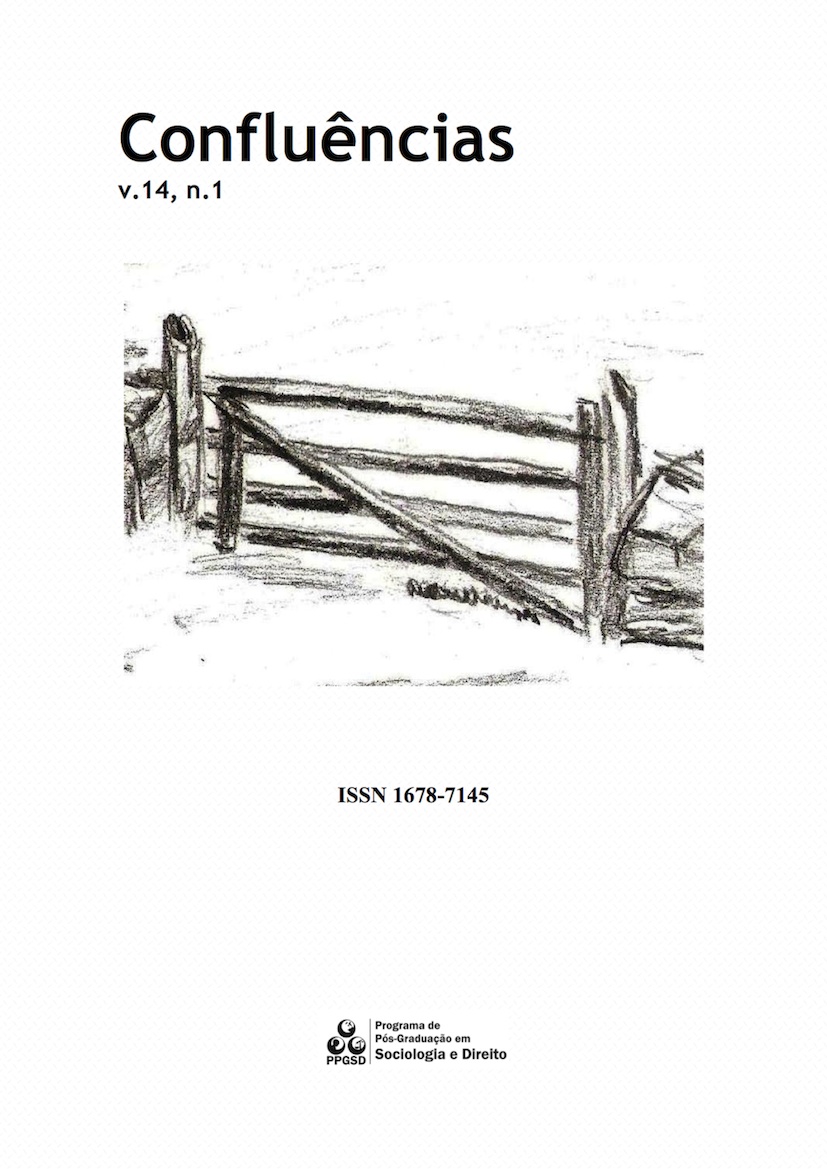BECOME PRESENT WHO IS MISSING? AN ANALYSIS OF THE NATIONAL HEALTHCARE’S PUBLIC HEARING IN JUDICIARY
DOI:
https://doi.org/10.22409/conflu14i1.p300Keywords:
Public Hearing, Supreme Court, Representativeness, Participation, Civil Society, JudicializationAbstract
This article exposes a critical analysis of the National Healthcare’s Public Hearing - proposed by the Federal Supreme Court - aiming to evaluate the extent to which this mechanism provides an efficient assurance of representation of civil society in the deliberative instances of the Brazilian political universe. From a consideration regarding the judicialization of rights, our analysis aims to find out if the Public Hearings in the scope of the Federal Supreme Court precisely contributes to the effective participation of the various sectors of society which are affected by this decision-making process. To develop these themes, the article is structured into three different segments. The first one illustrates the historical background concerning the rights to healthcare in Brazil. The second part intends to deliberate and expand on the concept of judicialization. The third part puts forward an empirical analysis of the Healthcare’s Public Hearing, aiming to provide an answer to the issues previously shown. At last, a brief conclusion is presented, comparing the theoretical reflections with the empirical analysis.
Downloads
References
AJOUZ, Igor; VALLE, Vanice do. A concretização do direito à saúde: passos orientados pela audiência pública n. 4 no Supremo Tribunal Federal. In: ASENSI, Felipe; PINHEIRO, Roseni. (orgs). Direito Sanitário. São Paulo: Elsevier, 2011.
ALEXY, Robert, Theorie der Grundrechte, 1994 apud ÁVILA, Humberto. Teoria dos Princípios da definição à aplicação dos princípios jurídicos. 4. ed. São Paulo: Malheiros, 2004.
ARANTES, Rogério Bastos. Judiciário: entre a justiça e a política. São Paulo: IDESP/Sumaré, Educ, 1997.
AVILA, Humberto. Teoria dos Princípios da definição à aplicação dos princípios jurídicos. 4.ed. São Paulo: Malheiros, 2004.
BATISTA, Rodrigo. Revolta da Vacina. Disponível em <http://www.historiabrasileira.com/brasil-republica/revolta-da-vacina/> Acesso em: 10 mai.2012.
COHN, Amélia. Caminhos da Reforma Sanitária. Lua Nova, n.19, São Paulo, novembro 1989. Disponível em < http://www.scielo.br/scielo.php?pid=S0102- 64451989000400009&script=sci_arttext> Acesso em: 19 abr. 2012.
BARROSO. Luís Roberto. Da falta de efetividade à judicialização excessiva: direito à saúde, fornecimento gratuito de medicamentos e parâmetros para a atuação judicial. R. Jur. UNIJUS. Uberaba-MG, v.11, n. 15, novembro, 2008.
BARROSO. Luís Roberto. Judicialização, Ativismo Judicial e Legitimidade Democrática. Revista Atualidades Jurídicas. 2009. Disponível em: < http://www.migalhas.com.br/arquivo_artigo/art20090130-01.pdf >. Acesso em 23 de abr. de 2012.
BINENBOJM, Gustavo. Uma Teoria do Direito Administrativo: Direitos Fundamentais, Democracia e a Constitucionalização. Rio de Janeiro: Editora Renovar, 2006.
BRASIL. Constituição da República Federativa do Brasil, 1988.
BRASIL. Recomendação n. 31 do Conselho Nacional de Justiça. Disponível em <http://www.cnj.jus.br/atos-administrativos/atos-da-presidencia/322-recomendacoes-doconselho/ 12113-recomendacao-no-31-de-30-de-marco-de-2010> Acesso em 20. mai. 2012.
BRASIL. Supremo Tribunal Federal. Agravo de Regimento na Suspensão de Tutela Antecipada
n. 175/CE. Relator: Ministro Gilmar Mendes. Julgado em 17 de março de 2010.
DWORKIN, Ronald. O império do direito. Tradução Jefferson Luiz Camargo; revisão técnica Gildo Sá Leitão Rios. 2.ed. São Paulo: Martins Fontes, 2007.







